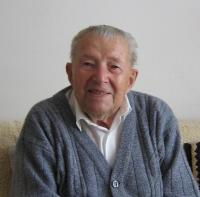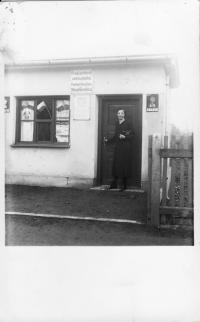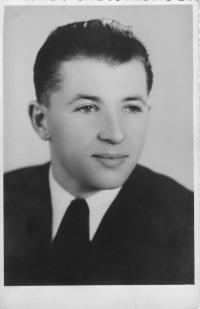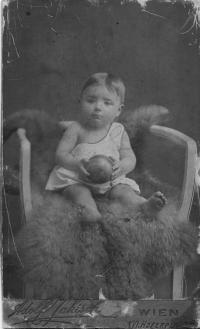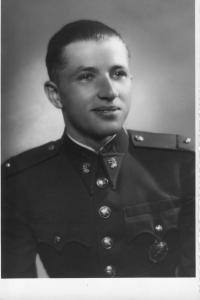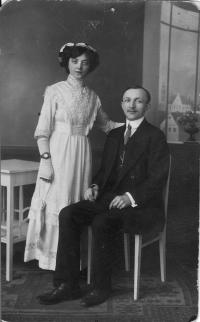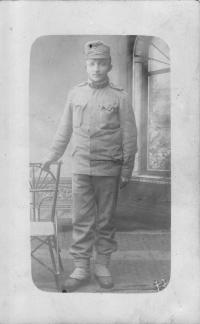“Soldiers were breaking their rifles, officers were tearing apart their coats.”

Download image
Miroslav Kalabus was born in 1914 in Vienna, in a Czech family. Over the course of the First World War, the family moved back to Wallachia where they originated. Miroslav Kalabus enrolled in the Czechoslovak army in 1936 and witnessed both mobilizations, the Munich agreement and the shameful handover of Czechoslovak garrisons to the Wehrmacht. What he likes to remember the most from this period is the town of Fulnek, where local Nazi supporters and sympathizers (so-called “Henleinovci”) prematurely engaged in the organization of a greeting ceremony for the German troops. They were decorating the town with triumphal arches and flags and banners with Nazi symbols and swastikas. Mr. Kalabus was a member of a Czechoslovak army unit that was passing through the city and forced the Nazi collaborators to remove the decorations. After he left the army, he lived in Jasenka near Vsetín and worked as a technical administrator under the supervision of director Josef Sousedík, who was in charge of the local resistance organization in the Vsetín region. Like many others of Sousedík’s subordinates, Mr. Kalabus joined the resistance as well. He became the deputy of the commander of a guerilla group that was engaged in preparations for armed confrontation with the German occupants. However, the partisans didn’t get the chance to fight the German forces because they were outstripped by the 1st Czechoslovak army corps that liberated Vsetín on May 4, 1945. The guerilla group was involved in the action by capturing and disarming five German soldiers. Right after the war, Miroslav Kalabus left to Šumperk, where he worked as a teacher till his retirement and where he still lives today.
